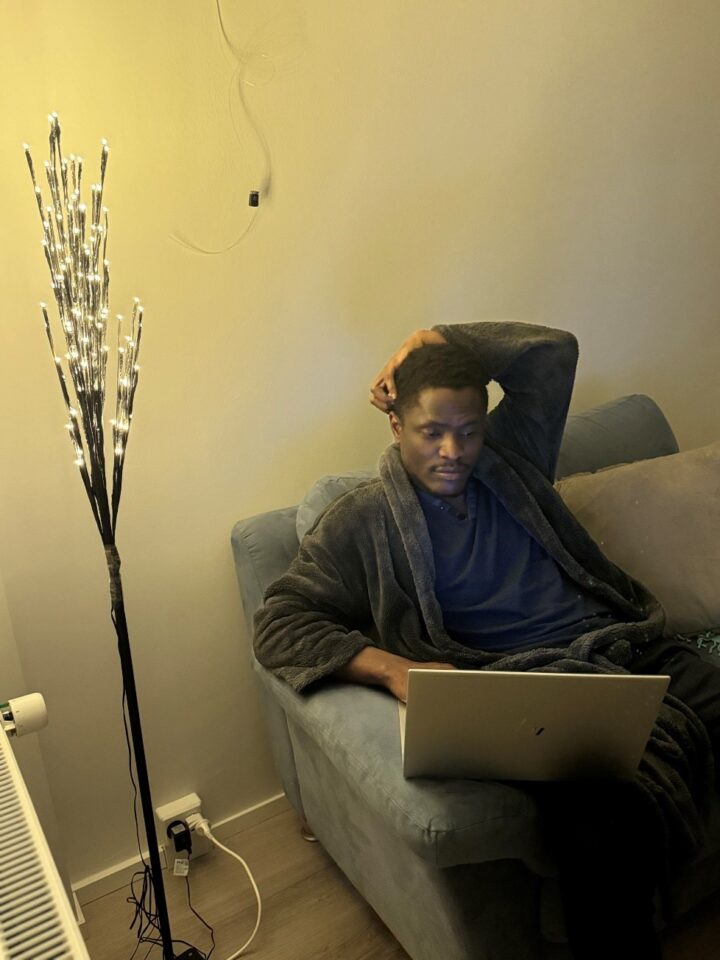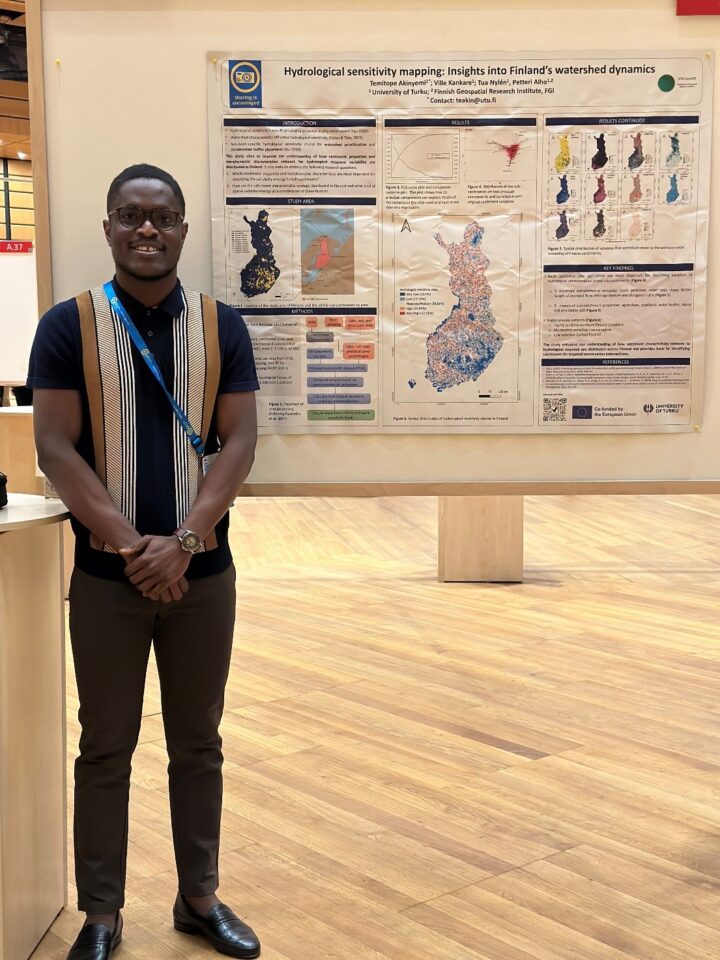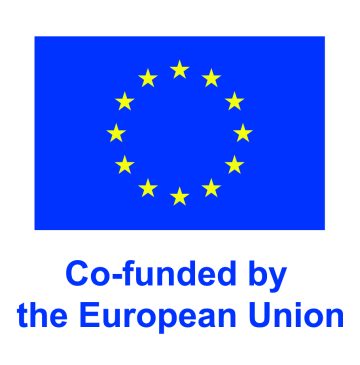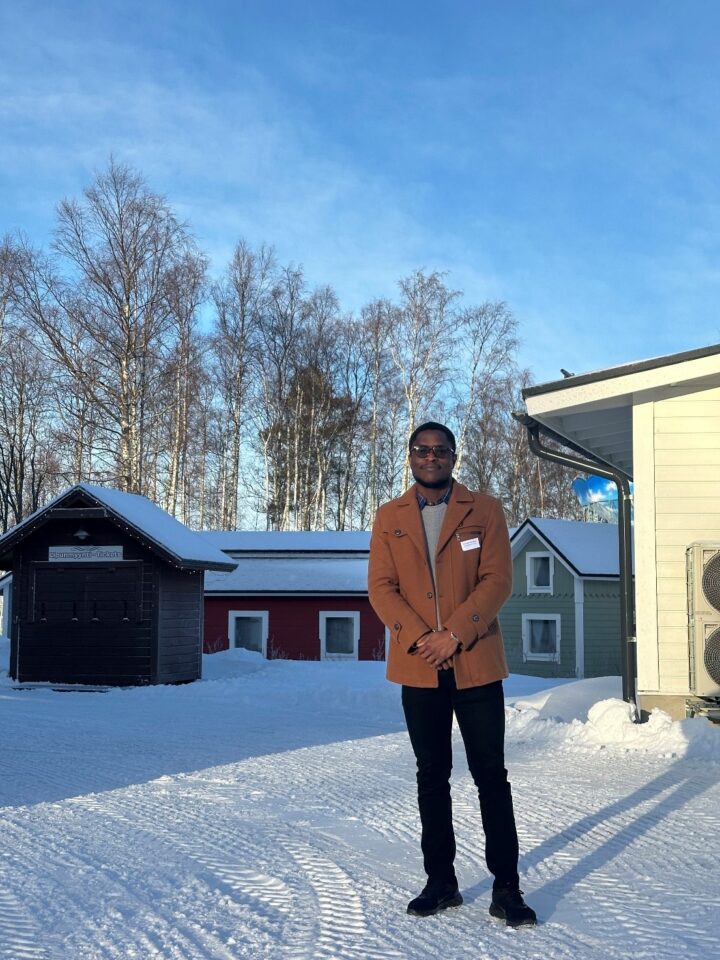Journey through resilience, redirection, and research
If you’re expecting a thought-provoking argument on digital and green transitions, flawless life plans, or dream jobs falling from the sky — this isn’t it. What follows is a chronicle of ‘what-am-I-doing-with-my-life’ moments, fuelled by humbling life experiences, an unexpected love affair with botany, and an unlikely romance with Finland.
A Journey of Passion and Purpose
As a young man, one thing I have learnt from my journey is that talent alone is never enough; hard work and commitment are far more vital for success. Many say that the journey to a PhD is never a bed of roses but rather a path filled with ups and downs. But was pursuing a PhD a childhood dream? Not exactly. However, I always believed that I could excel in any field that that piqued my interest. From elementary through high school, geography came naturally to me. It was a subject I excelled in effortlessly, and I was fortunate to have phenomenal teachers who made learning enjoyable. Perhaps their influence played a role in my success—kudos to my tutors!
A Dream Shaped by Disappointment
The dream of a PhD was born the day my hope of studying medicine and surgery was dashed after three failed admission attempts. Each rejection felt like a blow, reinforcing the belief that without medicine, my dreams were over. I questioned whether I had failed, or if I simply needed to rethink my path. Don’t blame me for trying; this was the expectation my society had set. I was made to believe that certain professions were the only gateway to success. In every discussion about career aspirations, I would hear people say they wanted to become doctors, engineers, or lawyers. The media reinforced this mindset, glorifying these professions while overlooking or belittling others. I felt tense and pressured to fit in. This disappointment, however, led me to make a personal promise: If I couldn’t study medicine, I would excel in whatever field I pursued. That was how I ended up in botany, a course closely related to agriculture. Initially, I struggled to connect with it, but my perspective shifted when a lecturer introduced us to economic botany.
Growing up in an agrarian community, I had witnessed first-hand how plants were used for medicinal purposes. The elders in my village could identify, harvest, and prepare plants to treat ailments that modern medicine sometimes failed to cure. Their deep knowledge fascinated me, and I soon realized that this was a niche I could explore. Inspired by this, I pursued a master’s degree in botany, hoping to specialise in this area. But just when I thought I had found my path, fate had other plans. The COVID-19 pandemic struck, and everything came to a standstill. I could no longer work in the laboratory where I had been volunteering, and for the first time in years, I felt completely lost. I went from feeling certain about my future to staring at uncertainty. The lab doors were closed, my research halted, and I was left wondering—what now?
Embracing Uncertainty & Finding a New Path
The COVID-19 pandemic was one of the lowest and toughest moments for many people, myself included. But as a fresh master’s graduate, it hit differently. I had worked hard to carve out a niche in my academic journey, believing I had finally found a clear path toward a well-structured professional life. Suddenly, everything came to a standstill; the research lab shut down, my projects were suspended, and for the first time in a long while, I felt completely directionless. I even began to question my sanity and purpose.
At times, in the dead of night or early mornings, I found myself wondering—had all my efforts been wasted? Had I just hit another dead end? Should I start over again? The pressure was intense—financially, emotionally, and mentally. I had no clue what my next step should be. But amidst the uncertainty, something unexpected happened. A friend sent me a job advert for extension officers at a company that, somehow, had been granted permission to continue field activities despite the lockdown. How they managed to get that pass? I had no idea. The pay was low, but one thing stood out; it offered an opportunity to learn and travel across Nigeria. So, I submitted my application and was fortunate to get the job. For the first time in months, I felt rejuvenated—a new role as an extension officer in the Sustainability Department.
In this role, my primary responsibility was mapping agricultural producer networks across six Nigerian states, which involved identifying and delineating natural features such as water bodies, rock formations, and other significant landmarks. This data was crucial for validating satellite imagery and enhancing our understanding of the local environment. These experiences amplified my desire to further understand how geospatial data could be leveraged to combat deforestation, a significant challenge I identified during my fieldwork. This motivation was a key factor in my decision to apply for the Commonwealth Shared Scholarship, which fully funded my master’s degree in Environmental Management (Conservation) at the University of Stirling, UK.
At the University of Stirling, my initial goal was to study GIS to address deforestation issues. However, my academic trajectory underwent a significant shift following my engagement with three exceptional lecturers (Dr. Verity, Dr. Thiago, and Dr. Allan) in the Geomatics module. A pivotal moment occurred when I completed an assignment on Flood Risk Assessment on River Forth and Land Use Changes in Stirling. This experience unveiled the vast potential of GIS and remote sensing, sparking a profound interest in me. Consequently, I decided to focus my dissertation on natural disasters, specifically summer wildfires in the eastern Australian states, under the guidance of Dr. Verity. This research endeavour culminated in my being honoured with the 2023 Course Director’s Prize, awarded for making the most significant contribution to the Environmental Management Programme.
Of course, this journey wasn’t a smooth transition. There were moments of frustration, self-doubt, and imposter syndrome. But this time, I had a different mindset—I wouldn’t let failure stop me; I would learn from it.
Little did I know that this shift in perspective would eventually lead me to a PhD opportunity in Finland, something I never imagined when I first started this journey.
The Moment Everything Changed: From Doubt to Acceptance
After completing my master’s, I felt a mix of excitement and uncertainty. I had achieved something significant, yet deep down, I knew my journey wasn’t over. The question lingered, what next? Was I truly ready for a PhD, or was I just trying to prove something to myself?
Finland had always intrigued me. Having visited twice, I fell in love with its serenity, culture, education system, and most importantly, its family-oriented lifestyle. It felt like a place where I could thrive both academically and personally. However, like many of my peers, I initially focused on English-speaking countries for my PhD. With all my education in English, I assumed my best chances lay in familiar academic environments. But as I explored further, I realized that expanding my search could open new doors.
For months, I carefully crafted each application to match potential supervisors and research interests, yet the cycle of hope and rejection persisted. The flood of “We regret to inform you…” emails nearly drove me insane. The constant setbacks became overwhelming, forcing me to take a break just to regain my sanity. I jokingly referred to those emails as “love letters“—a bittersweet reminder of my persistence in chasing a dream that felt just out of reach. But just when I was about to give up, something changed; I saw Professor Niina Käyhkö’s repost of doctoral position opening on LinkedIn. It was well-suited with my experience and future aspirations.
Remember, I mentioned that Finland was never on my radar at first. But that changed when I stumbled upon a doctoral position at the University of Turku for a research project titled: “Remote Sensing and Morphological Modelling in Hydromorphological and Sediment Connectivity.” Something clicked. It felt like all the pieces of my journey—botany, geospatial science, and sustainability—were coming together in one package. There was just one problem: modelling. While I had some experience in flood risk modelling, I knew I wasn’t an expert. Self-doubt crept in, was I really prepared for this? Determined, I researched intensively for a few weeks, learning as much as I could. Eventually, I convinced myself that I could cope. So, I pulled myself together and submitted my application.

The night I submitted my UTU-GreDiT PhD application (20 January 2024, 21:30)
A few months later, my application passed the eligibility and assessment stages. When I received the reviewers’ comments, I was stunned—it felt like they had seen right through me. Their feedback was spot on, reinforcing both my strengths and areas for improvement. The interview went smoothly. I capitalised on my strengths—remote sensing, and assured them that while my modelling skills needed improvement, I was eager to learn. Then came the moment of truth.
One morning, an email popped up from the UTU-GreDiT Programme Coordinator. My heart skipped a beat as I opened it.
Subject: Regarding your application to UTU-GreDiT – Congratulations!
Then, the body of the email:
“The selection of ‘Solutions for Green and Digital Transition’ (UTU-GreDiT) doctoral researchers has been completed. Based on the external evaluations and the interview round, the UTU-GreDiT programme board has decided on the top candidates (…) We are happy to inform you that you have been selected for UTU-GreDiT – congratulations!”
I had to read it twice to believe it. After all the rejections, self-doubt, and emotional turmoil, I had finally made it. But as excitement settled in, a new fear emerged—was I truly ready for this?
Looking Ahead: Lessons from the Journey
It has been a year since I started my doctoral programme at the University of Turku, Finland. If I told you it has been easy, I wouldn’t be entirely honest. This first year has been challenging in many ways—adjusting to the cold climate, navigating a new language, and adapting to a different academic environment. Despite these challenges, I have been pleasantly surprised by the support system around me. From the university and department to my colleagues and peers, everyone has been incredibly welcoming, making me feel at home and always ready to assist. This sense of community and academic support has been invaluable.
So far, I have had the opportunity to attend conferences, present my research, and build new professional connections. Currently, I am working on my first manuscript, which focuses on a national-level multiscale approach to categorising Finland’s catchment areas using a combination of morphological and environmental variables.

2025 EGU General Assembly in Vienna, Austria.
Looking back, I see how much I have grown—not just in my research skills, but also in my ability to navigate challenges, embrace uncertainty, and adapt to new environments. The transition hasn’t always been smooth, but every difficulty has been a learning experience, pushing me beyond my comfort zone.
As I continue this journey, I am enthusiastic about enhancing my skills, collaborate with fellow researchers, and contribute to the broader understanding of Finland’s digital waters. There is still much to learn, and I am eager to see how my work evolves over the coming years.
To anyone considering a funded PhD abroad, know that the journey will not always be easy. There will be challenges, setbacks, and moments of doubt, but with the right mindset, resilience, and support, you will find your place. As my supervisor, Petteri, often says, “A PhD is like a marathon—one step at a time.” That wisdom has stayed with me, reminding me that progress is gradual and that every small step matters.
Do I care about what the future holds? Absolutely! But rather than being consumed by uncertainty, I am focusing on ensuring that I become the best possible outcome of this project. I believe the future is bright, but for now, I am embracing the present, making the most of each opportunity, and trusting the process. If there is one thing this journey has taught me, it is that failure is not the opposite of success—it is part of it. Every rejection, every challenge, and every moment of doubt has shaped me into who I am today. The road to success is rarely linear, but those who persist, adapt, and keep moving forward will find their way.
So, to anyone embarking on this path—keep going, keep learning, and never stop believing in the possibilities ahead.
Follow Temitope on LinkedIn and ResearchGate!
 Co-funded by the European Union. Views and opinions expressed are however those of the author(s) only and do not necessarily reflect those of the European Union or European Research Executive Agency (REA). Neither the European Union nor REA can be held responsible for them.
Co-funded by the European Union. Views and opinions expressed are however those of the author(s) only and do not necessarily reflect those of the European Union or European Research Executive Agency (REA). Neither the European Union nor REA can be held responsible for them.
